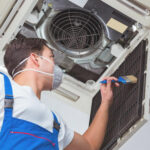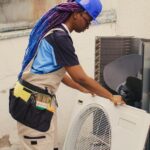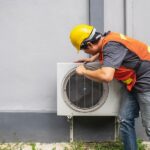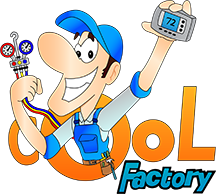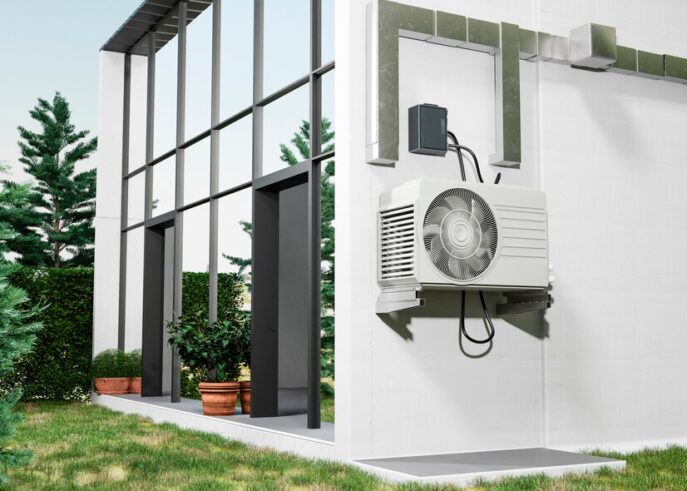
Top Green HVAC Technologies for Your Home
Top Green HVAC Technologies for Your Home
Green HVAC technologies are revolutionizing the way we heat and cool our homes, offering environmentally friendly alternatives to traditional systems. As the world shifts towards sustainability, homeowners are increasingly seeking energy-efficient solutions that reduce their carbon footprint without compromising on comfort. In this blog, we’ll explore the top green HVAC technologies designed to optimize energy usage, minimize emissions, and ultimately contribute to a healthier planet. From geothermal heating to smart thermostats, these innovations not only save money but also pave the way for a greener future.
Understanding Green HVAC Technologies
Green HVAC technologies encompass a range of innovative systems designed to reduce environmental impact while heating and cooling our homes. These solutions prioritize energy efficiency, utilizing renewable energy sources and advanced engineering to minimize waste and emissions.
From geothermal heat pumps that tap into the Earth’s stable temperatures to smart thermostats that optimize energy usage, each technology offers unique benefits and contributes to a more sustainable future. By understanding these green HVAC options, homeowners can make informed decisions to lower their carbon footprint and enhance indoor comfort while saving on energy bills.
The Importance of Energy Efficiency
Energy efficiency lies at the core of green HVAC technologies, playing a pivotal role in reducing energy consumption and environmental impact. Efficient HVAC systems not only lower utility bills but also decrease greenhouse gas emissions, helping combat climate change. By investing in energy-efficient heating, ventilation, and air conditioning systems, homeowners can significantly reduce their carbon footprint while enjoying enhanced comfort and indoor air quality.
Moreover, energy-efficient HVAC solutions often qualify for incentives and rebates, providing additional cost savings. Embracing energy efficiency isn’t just about saving money; it’s a crucial step towards building a more sustainable and resilient future for generations to come.
Geothermal Heating: Harnessing Earth’s Energy
Geothermal heating systems utilize the constant temperature of the Earth below the surface to efficiently heat and cool homes. By circulating a fluid through underground pipes, these systems extract heat during the winter and transfer it indoors, and in the summer, they remove heat from the home and release it underground.
This sustainable technology significantly reduces reliance on fossil fuels and minimizes carbon emissions. Geothermal heating systems offer consistent, reliable performance and have a long lifespan, making them a cost-effective and environmentally friendly solution for residential heating and cooling needs.
Solar-Powered HVAC Systems: Clean Energy Solutions
Solar-powered HVAC systems harness the abundant energy from the sun to provide heating, cooling, and ventilation for homes. These systems typically consist of solar panels installed on rooftops or in sunny areas, which capture sunlight and convert it into electricity through photovoltaic cells. This clean energy is then used to power HVAC equipment such as air conditioners, heat pumps, and fans.
Solar-powered HVAC systems offer numerous environmental benefits, including reduced reliance on fossil fuels, lower carbon emissions, and decreased electricity bills. By harnessing clean, renewable energy, homeowners can enjoy comfortable indoor temperatures while minimizing their environmental footprint.
High-Efficiency Air Conditioning Units
High-efficiency air conditioning units utilize advanced technology to provide superior cooling performance while consuming less energy compared to conventional models. These units are designed to optimize airflow, enhance compressor efficiency, and minimize heat transfer losses, resulting in lower electricity bills and reduced environmental impact.
By incorporating features such as variable-speed compressors and advanced refrigerants, high-efficiency AC units can maintain comfortable indoor temperatures even in extreme weather conditions while operating more quietly and reliably. Investing in a high-efficiency air conditioning unit not only improves comfort but also contributes to energy conservation and sustainability efforts.
Smart Thermostats: Precision Control for Savings
Smart thermostats revolutionize the way homeowners manage their heating and cooling systems by providing precise control and automated optimization features. These devices are equipped with sensors and Wi-Fi connectivity, allowing users to remotely monitor and adjust their home’s temperature settings from anywhere using a smartphone or computer.
Smart thermostats can learn household preferences, adapt to changing schedules, and optimize energy usage based on occupancy patterns, weather forecasts, and energy prices. By intelligently controlling HVAC systems, smart thermostats help homeowners save energy, reduce utility bills, and minimize environmental impact without sacrificing comfort or convenience.
Heat Pumps: Versatile and Eco-Friendly
Heat pumps are highly versatile HVAC systems that provide both heating and cooling by transferring heat between indoor and outdoor environments. Unlike traditional heating systems that generate heat, heat pumps extract heat from the air, ground, or water source and transfer it indoors during the winter. In the summer, they reverse the process to remove heat from indoors and release it outside.
This efficient heat transfer mechanism makes heat pumps incredibly eco-friendly, as they utilize renewable energy sources and produce fewer greenhouse gas emissions compared to fossil fuel-based heating systems. Heat pumps offer consistent comfort year-round and can significantly reduce energy consumption and operating costs.
Variable Refrigerant Flow (VRF) Systems
Variable Refrigerant Flow (VRF) systems are advanced HVAC solutions that provide precise temperature control and energy efficiency for commercial and residential buildings. These systems use refrigerant as the heat exchange medium, allowing for simultaneous heating and cooling in different zones or rooms within a building.
VRF systems employ variable-speed compressors and sophisticated control algorithms to adjust refrigerant flow rates according to specific heating and cooling demands, resulting in optimal comfort and energy savings. With their ability to maintain individualized temperature settings in multiple zones, VRF systems offer enhanced comfort and flexibility while minimizing energy waste and environmental impact.
Energy Recovery Ventilation (ERV) Systems
Energy Recovery Ventilation (ERV) systems are innovative HVAC solutions designed to improve indoor air quality and energy efficiency in buildings. These systems exchange stale indoor air with fresh outdoor air while simultaneously transferring heat and moisture between the two air streams. In colder climates, ERV systems preheat incoming cold air using heat from the outgoing warm air, reducing the energy required for heating.
Conversely, in warmer climates, they help to pre-cool incoming hot air, reducing the load on air conditioning systems. By recovering energy from the ventilation process, ERV systems promote a healthier indoor environment while lowering heating and cooling costs.
Eco-Friendly Refrigerants: Phasing Out Harmful Chemicals
Using eco-friendly refrigerants is important for fighting climate change and protecting the environment. Traditional refrigerants like HCFCs and HFCs are harmful gasses that make global warming worse and damage the ozone layer. To address this, manufacturers and policymakers are phasing out these bad chemicals.
They’re switching to better refrigerants with less impact on the environment. These include things like propane, isobutane, and other alternatives like HFOs, CO2, and NH3. By using these eco-friendly refrigerants, HVAC systems can lessen their harm to the environment and play a part in slowing down climate change.
Ductless Mini-Split Systems: Zoned Comfort with Less Waste
Ductless mini-split systems offer zoned comfort without the need for ductwork, making them ideal for homes with varying temperature needs or limited space for traditional HVAC installations. These systems consist of an outdoor compressor unit connected to one or more indoor air-handling units, allowing for independent temperature control in different zones or rooms.
By eliminating ductwork, ductless mini-split systems minimize energy loss associated with air leakage and duct heat transfer, resulting in higher energy efficiency and lower utility bills. Additionally, their compact size and flexible installation make them a versatile and convenient heating and cooling solution for any home.
Hybrid Heating Systems: Combining Efficiency for Optimal Performance
Hybrid heating systems combine the best of both worlds by integrating two or more heating technologies to maximize efficiency and performance. Typically, these systems pair a conventional furnace or boiler with a heat pump or other renewable energy source, allowing them to switch between different heating modes based on outdoor temperatures and energy costs.
During mild weather conditions, the heat pump operates efficiently to provide heating, while the furnace or boiler kicks in during colder periods when extra heat is needed. By dynamically adjusting heating sources, hybrid heating systems optimize energy usage, reduce carbon emissions, and provide consistent comfort throughout the year.
Government Incentives and Rebates for Green HVAC Upgrades
Government incentives and rebates play a significant role in promoting the adoption of green HVAC technologies by making them more affordable for homeowners and businesses. These incentives can take various forms, including tax credits, rebates, grants, and low-interest loans, provided by federal, state, and local governments, as well as utility companies and environmental organizations.
By offsetting the upfront costs of purchasing and installing energy-efficient HVAC systems, incentives encourage investment in sustainable technologies and accelerate the transition to a greener economy. Homeowners and businesses can take advantage of these financial incentives to upgrade their HVAC systems, reduce energy consumption, and contribute to environmental conservation efforts.
When it comes to ensuring comfort and sustainability in your home, investing in top green HVAC technologies is paramount. At Cool Factory, Inc, located in Sterling, VA, we’re dedicated to bringing you the latest in energy-efficient heating, ventilation, and air conditioning solutions.
From smart thermostats to eco-friendly heat pumps, our expert team is here to tailor solutions to your specific needs. Ready to make your home greener and more efficient? Contact us today at (703) 713-5113 and let’s embark on the journey towards a more environmentally conscious and comfortable living space. Your home and the planet will thank you!



